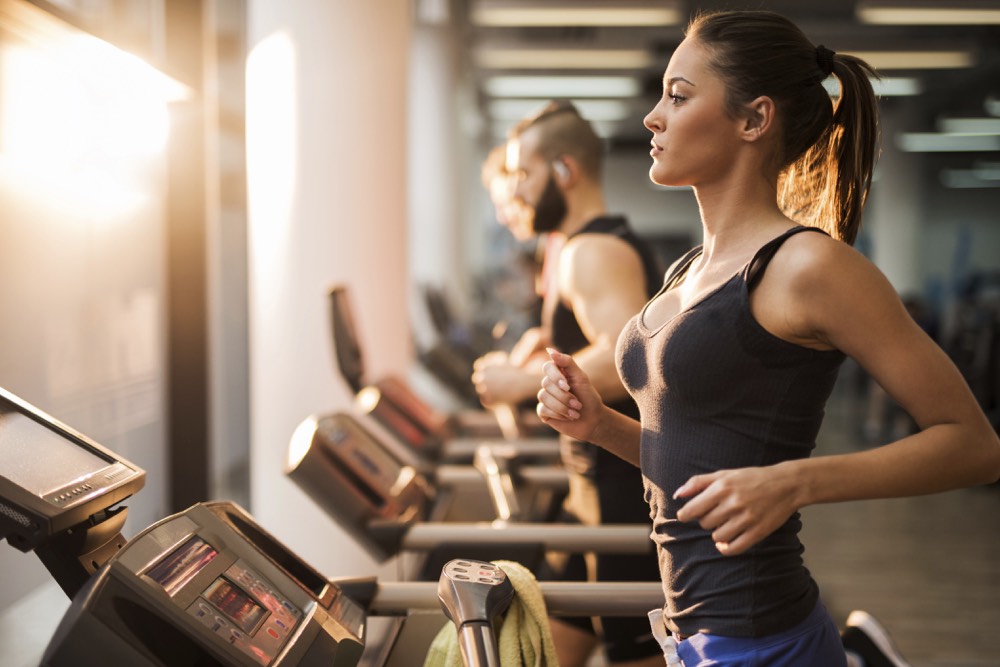
The chemicals released in the body during exercisehave a positive and stabilizing effect on mood and a person’s sense of well-being.
Anxiety is an emotion everyone has experienced. It is a distressing feeling of apprehension and uneasiness. Being anxious causes changes in your thinking (fear, worry), bodily functions (rapid heart beat, sweating), and behavior (pacing, tapping the table), all of which only reinforce your feelings of distress. A little anxiety can be a good thing – like getting excited before an event or feeling up for a performance. Too much anxiety is not a good thing, and at a certain point, anxiety can impair your abilities.
The psychiatric problem, generalized anxiety disorder (GAD) is much more than the normal anxiety that we all experience. It is an unprovoked chronic feeling of exaggerated worry and tension. Besides feeling anxious, people with GAD often have physical symptoms, such as trembling, twitching, headaches, diarrhea, sweating, or hot flashes. They may feel lightheaded, breathless, and as though they have a lump in the throat. Having this disorder means always anticipating disaster, and often worrying excessively about your health, money, family, and work.
Although sufferers know their anxiety level is more than they need, they cannot lessen their concerns. Just as with depression, anxious people do not have their condition by choice. They cannot control their feelings and will the anxiety away, without help. Successful treatment of GAD can include medication, psychotherapy, and relaxation techniques to control muscle tension.
A panic attack is a discrete episode that occurs suddenly – your heart pounds, you may feel faint or dizzy, your hands may tremble, tingle, or feel numb, and you may have chest pain or a smothering sensation. The feelings are terrifying, and you may think you are having a heart attack, stroke, or are about to die. Panic attacks can occur at any time without warning, even awakening you from sleep. They usually last a few minutes and occasionally persist for an hour or more.
Both, a single bout and regular physical activity reduce your anxiety level. As with depression, physical activity achieves that effect in several ways. Being consistent with regular exercise increases your sense of personal control and mastery, which can counteract feelings of anxiety. A workout also may provide your mind with a distraction or diversion from stress. In addition, being in shape can lower your adrenaline levels. That is one of the reasons that your resting heart rate and blood pressure are lower after physical conditioning. When your adrenaline level is lower, even if you are anxious, you will have fewer physical changes (less rapid heart beat, less tremor, and less sweating). So, there will be fewer physical signals to reinforce your feelings of anxiety.
Participating in an aerobic activity such as brisk walking, jogging, swimming, bicycling, racquetball, or tennis for 30-40 minutes three times per week is a healthy goal. Exercise can help the production of chemicals in the body that make people feel good naturally, and helps many feel truly relaxed when not exercising.
Although exercise reduces our anxiety levels, less research has been done concerning its use as a treatment for panic disorder or GAD. Regular physical activity appears helpful there, too. It can lower anxiety levels and reduce the frequency of panic attacks. However, unlike with depression, where exercise alone may correct mild to moderate symptoms, regular physical activity is usually not enough to completely remedy the anxiety disorders. For those with GAD and panic disorder, exercise will help, but medications and psychotherapy will still be needed.
Famous people who have suffered from an anxiety disorder include Isaac Asimov, Kim Basinger, Nicolas Cage, Earl Campbell, Johnny Depp, sally Field, Aretha Franklin, Naomi judd, john Madden, Alanis Morissette, Charles Schultz, Willard Scott, Barbra Streisand, and Oprah Winfrey.
